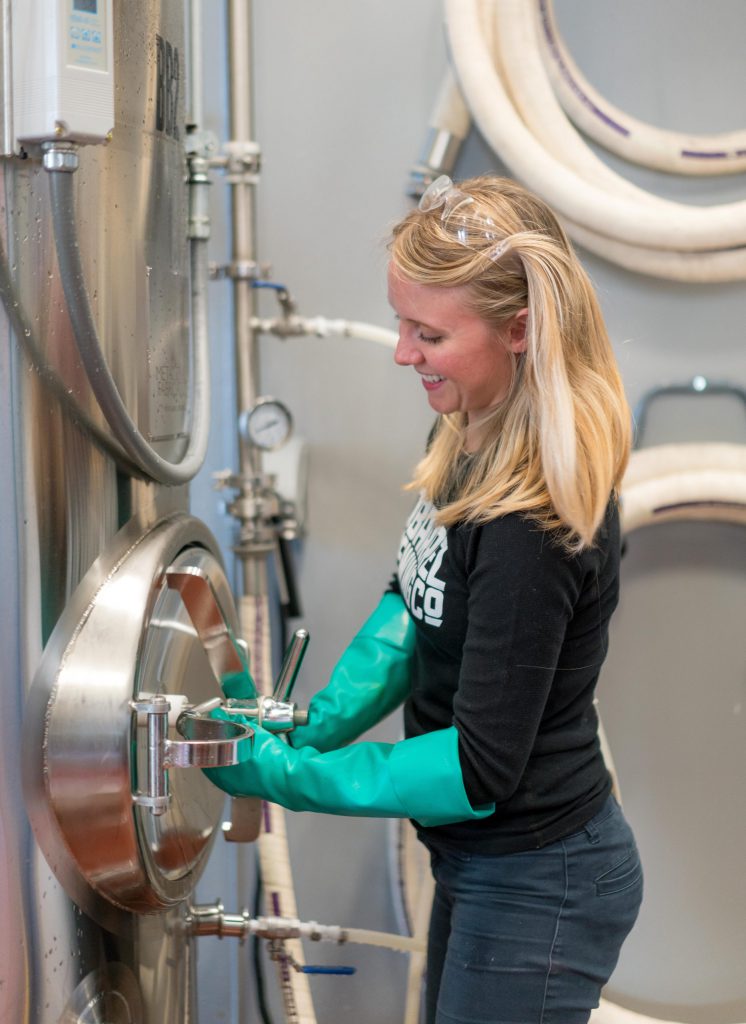The Craft Brewer’s Guide to Air Compressors
Everything you need to know about air compressors in your brewery can be found in this guide.
Many breweries are using an air compressor they believe to be saving them money. Your initial investment is not the only concern for cost, however. The wrong air compressor could cause inefficiencies leading to higher energy costs and even worse, the wrong air compressor could lead to contamination issues in your special brew leading to costly waste. The initial cost is definitely a concern. However, you wouldn’t want to risk your favorite brew with incorrect equipment, right? Use The Craft Brewer’s Guide to Air Compressors to sort out your options.

Why Would I Need An Air Compressor?
Air Compressors can help craft brewers to complete many tasks. Therefore, they are the pulse of your brewery, directly delivering the power to run your operation. These tasks include aeration, bottling/canning, clarifying, keg washing, sparging, packaging/labeling, cleanup/maintenance, and fermentation.
What Type of Compressor Do I Need for my Craft Brewery?
The type of compressor you need largely depends on usage. As a result, the type of compressor you use defines whether there is a risk of contamination, inefficiency, or waste.
An oil-free scroll compressor powers the automation and other processes in a production facility. These compressors are a good fit for processes where the compressed air is in direct contact with the beer or its ingredients because these compressors prevent contamination of the end product. Examples of processes you would use this compressor for include aeration and keg washing. Two great examples of these compressors would be the Quincy and Powerex oil-free scroll compressors.
Oil-lubricated compressors are suitable for processes in which the compressed air does not come in contact with the product. These compressors are robust and can power your automation projects with processes revolving around packaging, box makers, canning, or bottling automation.
Reciprocating compressors are generally used in microbreweries for their inexpensive nature, but these aren’t always the best option to use. This is because they are often noisy and kick off a large amount of heat within your facility which can cause issues for the brewing process. However, these compressors can be used for cleaning tasks, but keep in mind that these compressors may be costlier for their energy usage for smaller breweries. In that case, your best bet would likely be an oil-free compressor.

How Do I Maximize the Energy Efficiency of My Craft Brewery Compressor?
You don’t need to sacrifice the quality of your brewing for better energy efficiency. JHFOSTER is ready to help you on your path towards efficiency and cost savings. Buckle in and get ready to save some money with these following tips.
Get an Energy Audit
Our Energy Audit experts are ready to analyze your entire system and determine areas for better energy efficiency. Our audits will determine areas where you are wasting money, how much energy you are currently expending, and what you can do about areas where you could be operating more efficiently.
Maintain Your Compressed Air System
Being sure that your compressed air system is still operating at peak efficiency and not using a higher demand of energy than necessary can help you keep your compressed air system from consuming more cost than it needs to. Is your air compressor operating with higher pressure than necessary? You may be looking at a costly machine. It may be in your best interest to create a schedule that dictates when to check for leaks or other costly issues. JHFOSTER provides a maintenance checklist to help keep you on track with maintenance requirements.
Reduce Consumption from Bottling Practices
Air compressors are not always the most efficient appliances for basic operations within your plant. You may be surprised to learn that there are many tools that can perform basic duties that can be more efficient than using an air compressor. Rule of thumb: operate your air compressor when it is necessary, but do not use it needlessly.
Do you have questions about what compressed air system you need in your brewery or other tools that can get the job done? You can print The Craft Brewer’s Guide to Air Compressors. Or you can contact us with this form, email us at solutions@jhfoster.com, or call us at 800.582.5162.